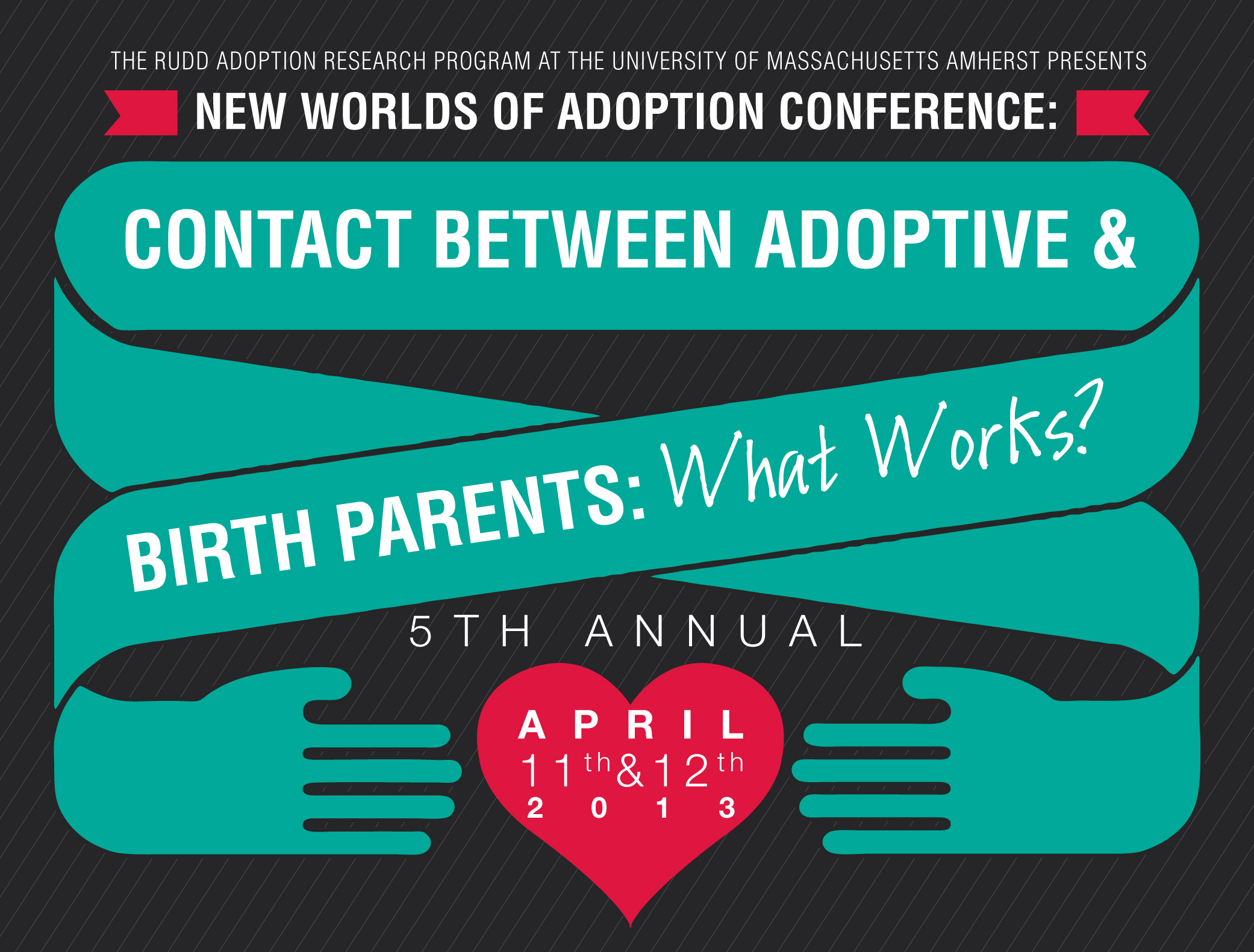Location
UMass Amherst
Start Date
11-4-2013 1:00 PM
End Date
11-4-2013 2:00 PM
Apr 11th, 1:00 PM
Apr 11th, 2:00 PM
Birth Parents & Openness with Adoptive Families: An Examination of Actual Contact & Satisfaction with Contact
UMass Amherst

Comments
The impact of openness on members of the adoption constellation has been a topic of much research and discussion over the past decade. Patterns of contact and communication between birth and adoptive families have continued to evolve, with a trend towards more information sharing and direct contact between the two parties. Generally, research has shown positive outcomes for adoption constellation members when greater openness is present. Much of this research, however, has focused on outcomes for adopted children. The long term effects of openness on birth parents’ adjustment following adoption are unknown. The Early Growth and Development Study is a longitudinal study of birth and adoptive families completing a domestic, infant adoption. The sample includes 554 birth mothers and 173 birth fathers who were interviewed in person, by mail, or by phone over a period of 5-10 years. Openness was examined two ways: at 4-6 months (T1), 18-months (T2), and 4 years (T3) post placement. At T1 and T2 birth parents were asked to describe the amount of contact they have with the adoptive families (openness contact), and their satisfaction with their level of contact was assessed (openness satisfaction). Birth parents’ adjustment was measured using self-report measures of depression (Beck Depression Scale) and general life satisfaction scores (Crnic’s Social Support Measure) at T1, T2, and T3. On average, birth parents reported moderate levels of contact with adoptive families, with direct contact in person, by phone or email a few times per year, and high satisfaction with this amount of contact. Preliminary analysis based on data from Times 1 and 2 indicated that levels of depression and general life satisfaction were moderately stable for both birth mothers and birth fathers (r’s .42 to .65). Openness satisfaction and openness contact also demonstrated stability from T1 to T2 (r’s .69 to .79). Regression models were used to test if changes in openness satisfaction predicted changes in depression and general life satisfaction from T1 to T2. For birth mothers, the levels of actual contact at T1 did not predict depression scores over time. However, changes in their openness satisfaction partially explained changes in depression from T1 to T2, with higher satisfaction predicting lower levels of depression. Similarly, birth mothers’ openness satisfaction at T1 predicted changes in life satisfaction at T2. For birth fathers, the level of contact between birth and adoptive families did not predict depression or general life satisfaction. In contrast, openness satisfaction predicted change in depression over time, but not general life satisfaction. Overall findings suggest that while contact between birth and adoptive families is relatively open, the perceived level of satisfaction with contact contributes more to birth parents’ post adoption adjustment than does the amount of actual contact with adoptive families.